Linda Rodriguez's Blog, page 4
September 8, 2017
Book Excerpt--To Find Time to Write Your Novel, You Must Make Time to Write
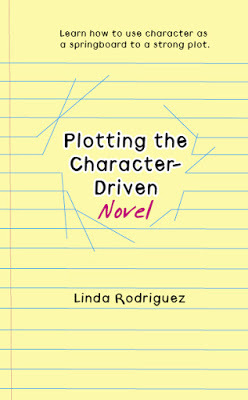 I'm an autumn baby. Consequently, fall is always when I feel as if the year is truly beginning. Of course, among the Cherokee, this time of year is when we celebrate New Year--we believe the world was created in the fall--and among the Jews, as I've discovered from my husband, this is the season for their New Year celebration, Rosh Hashanah. For many parents and kids, the start of school is the start of the new year.
I'm an autumn baby. Consequently, fall is always when I feel as if the year is truly beginning. Of course, among the Cherokee, this time of year is when we celebrate New Year--we believe the world was created in the fall--and among the Jews, as I've discovered from my husband, this is the season for their New Year celebration, Rosh Hashanah. For many parents and kids, the start of school is the start of the new year.It's at the beginning of a new year when people make resolutions for self-improvement. Writers often make resolutions to find time to write.
So, as my 2017 Cherokee/Jewish/schoolkid New Year's gift to all my writer friends out there, here to help with that problem is an excerpt from my new writing book, Plotting the Character-Driven Novel, available in ebook and trade paperback here.
https://www.amazon.com/Plotting-Character-driven-Novel-Linda-Rodriguez/dp/097912915X
This book is based on a class I've been teaching for years, which is always sold out. People have requested that I write it up as a book, so it's finally available. I hope you'll enjoy this section.
Book Excerpt--To Find Time to Write Your Novel, You Must Make Time to Write
Writing a novel requires several things—time, motivation, the willingness to keep learning the craft of fiction, and an ability or process to access your creative thoughts. We’ll deal with the first two in this chapter briefly since they’re mostly beyond the purview of this book, and the rest of the book will concern itself with elements of the craft of fiction and a process for accessing your own inner knowledge of your novel by freewriting, brainstorming by yourself, and thinking on paper. I will be including samples of actual work documents I have used with this process to create published novels in order to give you examples of how these techniques and tools work—and also to show that behind those perfect books you pick up at the bookstore lies a great deal of hard work, messy process, and flailing around. This book is designed to help you keep the flailing around to the minimum.
How do you find time to write the novels which are your vocation in the midst of job and career demands, family and housework demands, community and societal demands? When everyone else expects so much from you that there’s nothing left for your own dreams, what can you do about it?
First, we have to change our terminology from “finding time to write” to “making time to write.” The sad truth is that no one finds time to write. There aren’t big pockets of time just lying around waiting to be picked up and used in most of our lives. For most of us, we’ll have to give up some comfort or pleasure to make real time to write—in some cases, to make any bits of time to write at all.
The first step is to make the decision to own your own life. Time is not a commodity--the time we’re talking about is the substance of your life. When it’s gone, so are you. If you want to write anything, you have to claim your own life and find out what you want.
How do you find those pieces of time and the regular schedule for writing that leads to a body of work? The trick is to create order and make a tourniquet for a time hemorrhage, but first you must destroy all of those 'shoulds' and 'what will people thinks' that are standing in your way. Make it easy on yourself by asking for help and accepting help when it’s offered to you. Take the time to de-stress. When you’re not frazzled by stress, you’ll find it easier to set limits and boundaries and hold to them.
Whenever you find your desk or day becoming chaotic, take time to reorganize. It will repay in more time that you can steal for your illicit love affair with the novel. To make sure you stay on track with those things that absolutely must be done, make a brief list of the way your time was spent at the end of each day and week. Check it for places where you abandoned time reserved for writing or other truly necessary tasks to engage with lower priority urgencies or comfort activities. After a disastrous day, sit down with a notebook and figure out how to handle things differently if you face the same situations again. Review the situation and just what happened step by step, pinpointing the spot(s) at which you could and should have made a different decision or taken a stand against someone else's urgency with your time. Figure out a strategy for dealing with this situation when it next arises, and write it down. Then forget the day and relax.
Worrying about the myriad things, some great but most small to tiny, that we must take care of wears us down. When you find yourself doing this rather than being able to write or revise the passage you want to work on, keep an ongoing master list and write down each task or obligation the moment you think about it. Get it out of your head and onto paper to free your mind and stop the energy drain. Then, later, you can decide which tasks can be delegated to someone else and arrange the remaining tasks in the order that will allow them to be done quickest and most easily.
We can also free up energy by developing habits and systems to take care of the mindless stuff. We already do this every day, brushing teeth, driving to work, without having to make decisions for each tiny action that comprises these tasks. Develop a system for handling things that recur, and stick with it for twenty-one days. Then it will be a habit, and you can forget it and set your mind free to be more creative.
Much time use is sheer habit. Work smarter. Find the ways in which you want and need to spend time. Steal those minutes and hours from low-priority tasks. Break down everything on your to-do list into small tasks and estimate the minimum time to accomplish them. (Double all time estimates!) Schedule into your calendar. If they won't all fit in the time allotted, then something must go. Nothing is fixed in stone--renegotiate and eliminate whatever you can. Of the rest, what can you successfully delegate? It pays to invest time (and money, if possible) in training someone to do it.
Become assertive. Don't be afraid to approach someone with a request, and don’t take it personally if they refuse you. Learn to say 'no' kindly and firmly and to receive a 'no' without letting it affect your self-esteem or your relationship. Be secure.
Author of many published novels and teacher of writing, Holly Lisle, says it the best way I’ve ever seen it. “Realize that real writers who write multiple books and who make a living at it have systems they use. A process for brainstorming, a consistent way of outlining a story, a certain number of words or pages a day, a way of plotting, a way of revising, a way of finishing. Writing is work. It doesn't fall out of your head by magic. It doesn't just happen because you want it to.”
Published on September 08, 2017 15:43
August 30, 2017
End of Cancer Treatments + a Poem
 My oncologist has agreed that I should go off cancer meds (Aromasin) and chemo. This is something that rated a celebration, so I took myself out to lunch after leaving the cancer clinic. (Do I know how to party, or what?)
My oncologist has agreed that I should go off cancer meds (Aromasin) and chemo. This is something that rated a celebration, so I took myself out to lunch after leaving the cancer clinic. (Do I know how to party, or what?)This whole journey began over three years ago when, by sheer accident, they discovered cancer in my right breast. It never showed in any imaging. They did a lumpectomy to remove what they thought was a benign papilloma in one of the ducts--it was, indeed, benign--and discovered carcinoma. After three surgeries in two months, I ended up minus that breast and all its lymph glands and counting myself lucky, since the breast had been riddled with carcinomas that didn't show up in any diagnostic imaging. We had caught it just before it began moving out of the breast.
The mastectomy left me with lymphedema in my right arm, a condition that can't be cured but must be managed for the rest of my life. And my fierce, little oncologist who sees herself in a never-ending battle with cancer (and whom I love and respect) put me on daily meds and an every-six-months infusion to try to prevent the same kind of hidden cancer from growing in my left breast. The side effects of these however, exacerbated my lupus and fibromyalgia, leaving me in massive flare continually. The fatigue and weakness, joint pain, and muscle pain and weakness decreased my mobility more and more as time passed. So I finally decided that I needed to stop at three years, even though she had wanted me to stay on this regimen for at least five years.
So I was nervous when I went in for my six-months treatment and told her I didn't want the chemo and had already stopped taking the Aromasin. I explained that I saw it as a quality-of-life decision--and to my great relief, she agreed with me. I didn't want to anger her. This woman, my wonderful female surgeon, and the rest of my medical team probably saved my life, and I'm eternally grateful to them. I just didn't want to spend any more years as a semi-invalid.
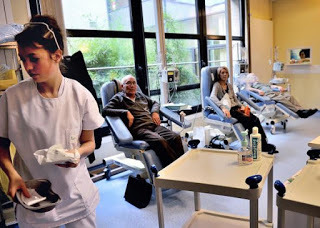 So, as I finally put cancer behind me, I want to post this poem I wrote one day after my time in the chemo clinic. I met so many people who were fighting hard and sometimes pretty hopeless battles with such courage and dignity. I always came out of my time in the chemo chair--which was nowhere as awful as what some of them endured each time--with renewed respect for those other patients and for the nurses, who were always upbeat, kind, and truly caring.
So, as I finally put cancer behind me, I want to post this poem I wrote one day after my time in the chemo clinic. I met so many people who were fighting hard and sometimes pretty hopeless battles with such courage and dignity. I always came out of my time in the chemo chair--which was nowhere as awful as what some of them endured each time--with renewed respect for those other patients and for the nurses, who were always upbeat, kind, and truly caring.IN THE CHEMO CLINIC
In the chemo clinic today cushy chairs raise us abovethe ground like children with feet dangling until the nursesput us in recline with our feet out in front of us and our heads tilted back fluorescent colored bags hang from rolling chrome towers a different color for each of us we’re having a real party here this cold rainy afternoon colorful plastic lines drip the brightliquids into us every one to her own poison it’s just usgirls here today no guys this time gaunt gray cheeked white haired if we had any left girls except a few of us who have swelled like helium balloons
©Linda Rodriguez 2016
Published on August 30, 2017 13:57
June 21, 2017
Poem for My Husband on His Birthday at Summer Solstice
 In this photo, my husband Ben sits in the middle between our dear friend, Sergio Troncoso, and me at the 2017 AWP national conference.
In this photo, my husband Ben sits in the middle between our dear friend, Sergio Troncoso, and me at the 2017 AWP national conference.Today is his birthday and the summer solstice. In less than two weeks on the Fourth of July, we will have been living together as a couple for 29 years, and on December 27th, we'll be legally married for 25 years. So I wanted to post a poem I'd written for him to celebrate his birthday and the Solstice.
I've written many poems for him, including the title poem of my chapbook of passionate love poems, Skin Hunger. But in today's solstice heat, I thought I'd post the one I wrote about the day after we arrived home from our honeymoon when he ventured out after an overnight ice storm for the newspaper and fell on the ice. It seemed to offer insights into the risky act of marriage itself.
WALKING ON ICE
after a back injury is a constantputting yourself at risk.I know this fear wellfrom years of setting nerve-damaged heelfirmly on glazed cementthat may turn banana peel on meas if in some eternal silent film gag.For you, it’s all new—the discovery that solid earth can shiftyou from upright to supineas soon as the water on its surface hardens. We age by learningsuch hard truths, move through lifegingerly testing our footing, or elseby smashing the brittle in our wayand sweeping the shardsfrom the sidewalk.It’s not so hard, learningto balance on the shine.
Published in Heart's Migration (Tia Chucha Press, 2009)
Published on June 21, 2017 14:26
June 17, 2017
Poem for Father's Day--"Safe At Last"
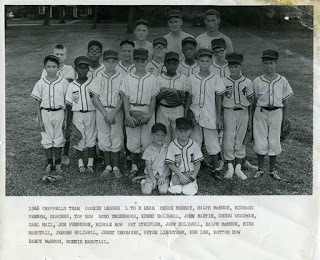 This photo is of my youngest brother's Little League baseball team and its coaches, including my stepfather (the small man on the left in the back row).
This photo is of my youngest brother's Little League baseball team and its coaches, including my stepfather (the small man on the left in the back row).On Father's Day, it is this man I remember and honor, a man who took on a bunch of traumatized kids when he married my mother and earned his "Dad" the hard way, the man who died in my and my sister's arms with our brothers all around his bed in that town where none of us lived any longer.
I wrote this poem after his funeral, and it seems appropriate for Father's Day and all of us whose fathers and stepfathers and father-substitutes are no longer with us to celebrate on the day in their honor.
SAFE AT LAST
I can’t cry any more,eyes swollen, lashes stuck together,so come then, elusive sleep,wipe the screen behind closed lidsof today’s grief. Show filmsscrambled in the projector,ends and beginnings framedby the middle, split onceand then again, past still coming,future remembered, presentdreamed but never known.Mix the stilted eulogy and the trip to Disneyland.Let him coach the scrubby little-league teamas we stand on glowing green plasticartificial grass carpetunder the cobalt blue vinyl canopy,listening to echoesof his voice calling to my brother,“Slide home. Go for it. Home.”
Published in Heart's Migration (Tia Chucha Press, 2009)
Published on June 17, 2017 22:00
June 16, 2017
For Father's Day, In Praise of Men Who Take On Other Men's Children
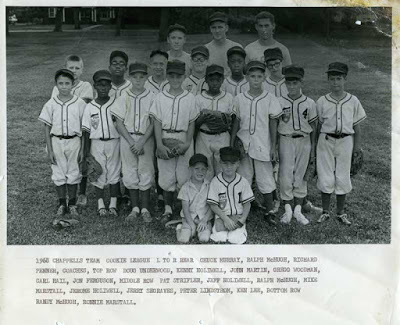
When I look back on my life, I realize I’ve been lucky enough to be closely involved with three men who had the ability to take on children who weren’t their own genetic children and love and care for them as fathers. It will be Father’s Day soon, and I want to say a word or two about these kinds of unsung heroes. ...
Read more on my blog today at The Stiletto Gang.
http://thestilettogang.blogspot.com/2017/06/men-who-take-on-other-mens-children.html
Published on June 16, 2017 07:50
June 11, 2017
Books of Interest from Writers of Color--GOOD SEEDS by Tom Pecore Weso
Guest Review by Ben Furnish
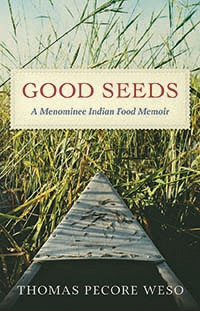 (Since Ben Furnish is writing a food memoir called Restaurant Therapy himself, he seemed the best reviewer for this new award-winning (National Winner of The Gourmand Award and IBPA Benjamin Franklin Awards Silver Medal Winner) book, which memorializes an entire Indigenous way of life through the gathering, preparing, and eating of food.
(Since Ben Furnish is writing a food memoir called Restaurant Therapy himself, he seemed the best reviewer for this new award-winning (National Winner of The Gourmand Award and IBPA Benjamin Franklin Awards Silver Medal Winner) book, which memorializes an entire Indigenous way of life through the gathering, preparing, and eating of food.
As always, I encourage readers to support the small and university presses that publish these books, without which we would have few books by writers of color, at all. Order Good Seeds below.)
http://www.wisconsinhistory.org/whspress/books/book.asp?book_id=510
Good Seeds: A Menominee Indian Food Memoir by Thomas Pecore Weso (Wisconsin Historical Society Press) is one of those rare books that really does stretch and dissolve boundaries of genre that too often separate literary from culinary and historical writing.
Weso focuses especially on what he remembers about cooking and eating with his traditional grandparents as he grew up in 20th century northern Wisconsin. As deceptively simple a detail as the uneasy status of oatmeal on his grandmother’s breakfast table, which Weso recounts early in the book, becomes a key in understanding the religious identity and educational background of his grandparents and mother.
Weso’s grandmother, Jennie, encountered oatmeal—and other such fare as pancakes—having attended Catholic schools that served Menominee areas in Wisconsin. In fact Menominee at that time had to choose between the Catholics and the Lutherans for schooling. If they wanted a secular-sponsored rather than religious education, their only choice was to do like Weso’s medicine-man grandfather, Moon, and attend the federal Haskell Institute in Kansas, where “they didn’t care what your religion was, as long as you were there for head count at morning muster.”
A generation later when Weso’s mother attended Haskell, however, she learned to eat oatmeal there. So Weso remembers oatmeal occasionally served in deference to his mother, but it remained something of an interloper on his grandfather’s menu. But even so, for the Menominee, oatmeal became a savory rather than a sweet dish, and Weso gives the recipe for Menominee-style oatmeal seasoned with pepper.
Although each chapter ends with relevant recipes for its storyline, the chapters’ narratives form the real heart of the book. Each story offers an intrinsically interesting story about his grandparents’ lives, but Weso goes on to place their experiences in the broader spectrum of Menominee experience of the time, and of Wisconsin and American experience more broadly.
"This is one of the most important differences between Native and European traditions," says Weso. "Wild rice grows and is used; it is not a profitable crop. ... Before a culture can take root, the storytellers need to be fed. ... Wild rice made the Menominee life possible."
With the literary economy to rival poetry, these recipes and commentary document a particularly vivid and essential aspect of daily life and cultural expression in a changing ethnic community.
Ben Furnish works as an editor/publisher and teacher in Kansas City, is the author of Nostalgia in Jewish American Theater and Film: 1979-2004 (Peter Lang), and is currently writing the food memoir, Restaurant Therapy.
 (Since Ben Furnish is writing a food memoir called Restaurant Therapy himself, he seemed the best reviewer for this new award-winning (National Winner of The Gourmand Award and IBPA Benjamin Franklin Awards Silver Medal Winner) book, which memorializes an entire Indigenous way of life through the gathering, preparing, and eating of food.
(Since Ben Furnish is writing a food memoir called Restaurant Therapy himself, he seemed the best reviewer for this new award-winning (National Winner of The Gourmand Award and IBPA Benjamin Franklin Awards Silver Medal Winner) book, which memorializes an entire Indigenous way of life through the gathering, preparing, and eating of food.As always, I encourage readers to support the small and university presses that publish these books, without which we would have few books by writers of color, at all. Order Good Seeds below.)
http://www.wisconsinhistory.org/whspress/books/book.asp?book_id=510
Good Seeds: A Menominee Indian Food Memoir by Thomas Pecore Weso (Wisconsin Historical Society Press) is one of those rare books that really does stretch and dissolve boundaries of genre that too often separate literary from culinary and historical writing.
Weso focuses especially on what he remembers about cooking and eating with his traditional grandparents as he grew up in 20th century northern Wisconsin. As deceptively simple a detail as the uneasy status of oatmeal on his grandmother’s breakfast table, which Weso recounts early in the book, becomes a key in understanding the religious identity and educational background of his grandparents and mother.
Weso’s grandmother, Jennie, encountered oatmeal—and other such fare as pancakes—having attended Catholic schools that served Menominee areas in Wisconsin. In fact Menominee at that time had to choose between the Catholics and the Lutherans for schooling. If they wanted a secular-sponsored rather than religious education, their only choice was to do like Weso’s medicine-man grandfather, Moon, and attend the federal Haskell Institute in Kansas, where “they didn’t care what your religion was, as long as you were there for head count at morning muster.”
A generation later when Weso’s mother attended Haskell, however, she learned to eat oatmeal there. So Weso remembers oatmeal occasionally served in deference to his mother, but it remained something of an interloper on his grandfather’s menu. But even so, for the Menominee, oatmeal became a savory rather than a sweet dish, and Weso gives the recipe for Menominee-style oatmeal seasoned with pepper.
Although each chapter ends with relevant recipes for its storyline, the chapters’ narratives form the real heart of the book. Each story offers an intrinsically interesting story about his grandparents’ lives, but Weso goes on to place their experiences in the broader spectrum of Menominee experience of the time, and of Wisconsin and American experience more broadly.
"This is one of the most important differences between Native and European traditions," says Weso. "Wild rice grows and is used; it is not a profitable crop. ... Before a culture can take root, the storytellers need to be fed. ... Wild rice made the Menominee life possible."
With the literary economy to rival poetry, these recipes and commentary document a particularly vivid and essential aspect of daily life and cultural expression in a changing ethnic community.
Ben Furnish works as an editor/publisher and teacher in Kansas City, is the author of Nostalgia in Jewish American Theater and Film: 1979-2004 (Peter Lang), and is currently writing the food memoir, Restaurant Therapy.
Published on June 11, 2017 10:52
June 2, 2017
Sparking Your Creativity - Today on The Stiletto Gang
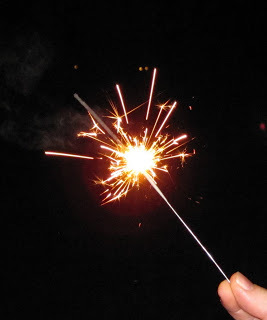 Sometimes we work so hard with such packed days that we burn out. This is not uncommon among writers. Unlike the image of the writer out there in the media, it's actually a hard job, full of dailiness and routine for the writing and the business sides, in addition to creativity. And sometimes the demands of the job leave us feeling dry and empty. At those times, it's vitally important for a writer--or any artist--to get back in touch with the creativity trapped inside her.
Sometimes we work so hard with such packed days that we burn out. This is not uncommon among writers. Unlike the image of the writer out there in the media, it's actually a hard job, full of dailiness and routine for the writing and the business sides, in addition to creativity. And sometimes the demands of the job leave us feeling dry and empty. At those times, it's vitally important for a writer--or any artist--to get back in touch with the creativity trapped inside her.Today on The Stiletto Gang, I talk about ten ways to do just that.
http://thestilettogang.blogspot.com/2017/06/sparking-your-creativity.html
Published on June 02, 2017 10:22
May 19, 2017
Plotting vs Pantsing--Today on The Stiletto Gang
Today, you'll find me on The Stiletto Gang discussing writing novels with and without plotting them out ahead. "Plotting vs Pantsing" is a false dichotomy, I find.
http://thestilettogang.blogspot.com/2017/05/plotting-vs-pantsing.html
http://thestilettogang.blogspot.com/2017/05/plotting-vs-pantsing.html
Published on May 19, 2017 09:11
May 11, 2017
A Poem for Mother's Day--at The Stiletto Gang
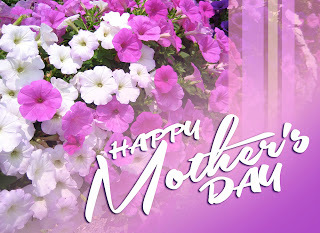
Today, you'll find me blogging at The Stiletto Gang with a bittersweet poem for all who have lost their mothers in one way or another and have difficulties during the big commercial lead-up to Mother's Day.
http://thestilettogang.blogspot.com/2...
Published on May 11, 2017 07:52
April 26, 2017
Final poem for National Poetry Month--JOSEPH SLEEPS
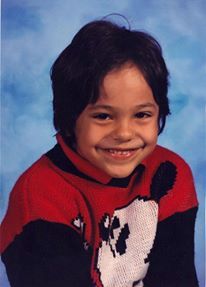 For this final poem of the month, I was drawn to a poem from my book, Heart's Migration, a poem that was written when my youngest son was still little. To show how long ago that was, he's now Dean of Humanities at a nearby university, and the George Bush mentioned in the poem is the first President Bush, George H. W. Bush.
For this final poem of the month, I was drawn to a poem from my book, Heart's Migration, a poem that was written when my youngest son was still little. To show how long ago that was, he's now Dean of Humanities at a nearby university, and the George Bush mentioned in the poem is the first President Bush, George H. W. Bush.Poetry can capture a moment for us so that we can always re-experience its emotions years later. I'm glad I wrote this poem because, even decades later, it brings that long-gone child back more clearly and intensely than any photograph.
JOSEPH SLEEPS,
his eyelids like a moth’s fringed wings.Arms flail against the Ninja Turtle sheetand suddenly-long legsrace time.
Awake, he’s a water-leak detector, a recycling rangerwho bans Styrofoam and asks for beeswaxcrayons, a renewable resource.He wants to adopt the Missouri river,write the presidentto make factories stop polluting.
They’re old friends, he and George Bush.He writes and scolds the president, every month or so,about bombing the children of Iraq(he made his own sign to carry in protest),about the plight of the California condor and northern gray wolf,about more shelters and aid for the homeless.The lion-shaped bulletin board in his roomis covered with pictures and letters from George,who must be nice, even if he is a slow learner.
Joseph is a mystery fan, owns 54 Nancy Drews.Nancy’s his friend, along with Jo, Meg, and Amyand poor Beth, of course, whom he still mourns.He also reads of knights and wizards, superheroes,and how to win at Nintendo.
The cats and houseplants are his to feed and water,and the sunflower blooming in the driveway’s borderof weeds. He drew our backyard to scale,using map symbols, sent off to have it declaredan official wildlife refuge, left a good-nightnote on my pillow, written in Egyptian hieroglyphs.
In my life, I have done one good thing.
Published in Heart's Migration (Tia Chucha Press, 2009)
Published on April 26, 2017 07:36



